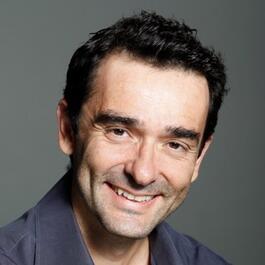
The MIT Press Podcast
Interviews with authors of MIT Press books.
Show episodes
An analysis of advances in military technology that illustrates the importance of organizational flexibility in both an attacker’s innovations and an opponent’s adaptations.How important is military innovation in determining outcomes during armed conflict? In Innovation and Adaptation in War, Matthew Tattar questions t

Thomas Princen, "Fire and Flood: Extreme Events and Social Change Past, Present, Future" (MIT Press, 2025)
Thomas Princen explores issues of social and ecological sustainability at the School of Natural Resources and Environment at the University of Michigan. He works on principles for sustainability, overconsumption, the language and ethics of resource use, and the transition out of fossil fuels. His latest book is Fire a

Joanna Merwood-Salisbury, "Barbarian Architecture: Thorstein Veblen’s Chicago" (MIT Press, 2024)
An important critic of modern culture, American economist Thorstein Veblen is best known for the concept of “conspicuous consumption,” the ostentatious display of goods in the service of social status. In the field of architectural history, scholars have employed Veblen in support of a wide range of arguments about mod

Christopher Ali, "Farm Fresh Broadband: The Politics of Rural Connectivity" (MIT, 2021)
As much of daily life migrates online, broadband—high-speed internet connectivity—has become a necessity. The widespread lack of broadband in rural America has created a stark urban–rural digital divide. In Farm Fresh Broadband: The Politics of Rural Connectivity (MIT Press, 2021), Dr. Christopher Ali analyzes the prom

Nora Kenworthy, "Crowded Out: The True Costs of Crowdfunding Healthcare" (MIT Press, 2024)
In Crowded Out: The True Costs of Crowdfunding Healthcare (MIT Press, 2024), Dr. Nora Kenworthy presents an eye-opening investigation into charitable crowdfunding for healthcare in the United States—and the consequences of allowing healthcare access to be decided by the digital crowd. Over the past decade, charitable c

Nathan E. Sanders and Bruce Schneier, "Rewiring Democracy: How AI Will Transform Our Politics, Government, and Citizenship" (MIT Press, 2025)
AI is changing democracy. We still get to decide how.AI’s impact on democracy will go far beyond headline-grabbing political deepfakes and automated misinformation. Everywhere it will be used, it will create risks and opportunities to shake up long-standing power structures.In this highly readable and advisedly optimis


